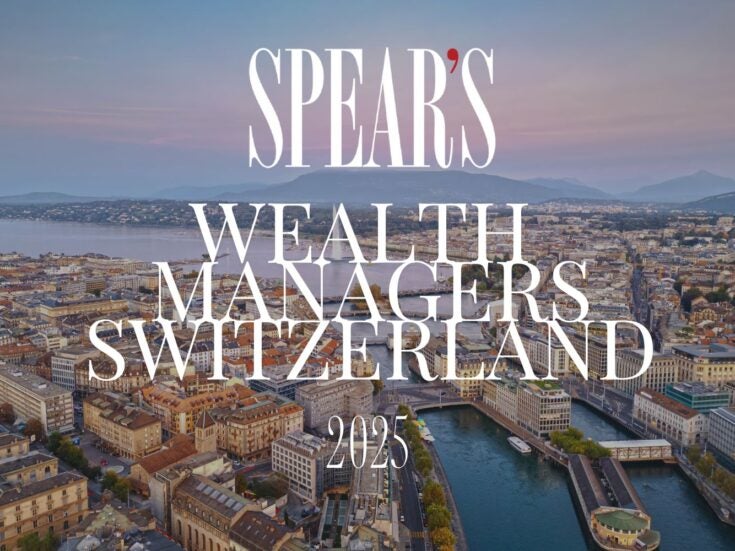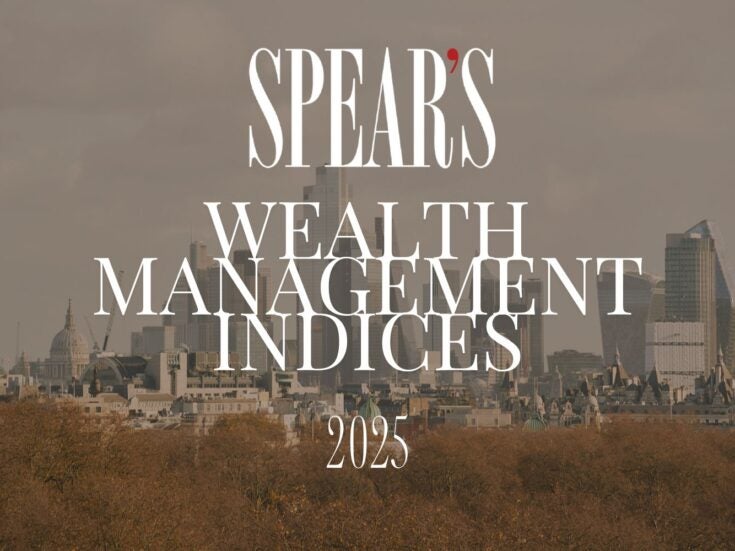
Could firms like the newly formed Vestra be the nicer, kinder and more personalised face of post-recession wealth management, asks Josh Spero
You are now your bank’s key concern. It seems funny to consider that there was a time when you would not have been: after all, you pay their salaries and fund their borrowings and bail them out. Even so, in the wake of the financial crisis, banks are looking at their clients’ aims and risk profiles with greater interest. It is this desire to provide individual attention which was among the motives of the 50 staff who left UBS last May to join Vestra Wealth (the very name means ‘your’). As David Blanc, an executive partner, says: ‘I saw my clients’ interest going one way and the banks’, in general, going the other.’
In this respect, Vestra is very much part of one of the industry’s key trends: the move to medium-sized wealth-management firms which can provide the intimacy of client relationships that you find at small houses, and the wide access to products and expertise that the globe-straddling behemoths have. Clients — especially those who are leaving the big banks — have an expectation that their wealth adviser will be able to access the same investment opportunities as global banks but treat them in an individual manner, as an IFA would do.
Following from this middle way is Vestra’s general welcome: instead of appealing to a particular sector, Vestra is booking money from entrepreneurs, City workers and many others; clients often have between half a million and two million to invest (‘the main part of our market,’ says Vestra’s founder and managing partner, David Scott), but there are also ultra-high-net-worths. Vestra has a special appeal to the former category: ‘They are the ones who were lured into the private banking concept and found it a bit disappointing. That’s where the mid-size boutique comes in.’
On a wider perspective, Scott feels that a midsize firm has the flexibility to make adjustments to asset allocation without index-hugging while being more diverse, with a greater service offering than many smaller wealth managers: ‘The smaller firms are more often associated with providing high levels of personal service but do not necessarily have the broader wealth management capabilities.’
The general welcome also includes a broad range of financial advisory services, ranging from financial planning to tax structuring, pensions and offshore investments.
The foundation of Vestra is a revolt against another common complaint thrown at the big banks: they only care about selling their own products. Scott, who found himself at UBS when Scott Goodman Harris was bought in 2004 and oversaw the integration of Laing and Cruickshank, acquired at the same time, is clear that this was not how he wanted to do business: ‘Many of the large banks appeared to be moving towards a focus on manufacturing investment products, which can cause conflict with the client’s perception of their private banker as an independent wealth adviser. Simply selling a standardised model or a structured product is often not in the client’s best interests.’
Scott left UBS in May 2007 to steer a distinctive course: ‘By the spring of 2007, I thought I could either go to another big bank and do more of the same, or I thought there’s an opportunity to create something from scratch, try to bring the best of stockbroking, the best of private banking, the best of wealth planning to one firm. With a new firm there’s no legacy issues. You weren’t trying to change something that was already there.’

In retrospect, he says, he perhaps underestimated quite how challenging the whole operation would be. ‘You need a critical mass — at least half a billion, probably a billion. For somebody to set that up from scratch and to get there quickly is very difficult. Before setting up Vestra I thought, “Why isn’t anybody else doing this?” And now I understand.’ He laughs — not at all sardonically but at the memory of a naïve thought.
The other challenge in creating Vestra, as will be familiar to anyone who read the financial pages last year, was that UBS did not take kindly to the springtime exodus of nineteen senior client advisers and 32 other staff, not to mention the 23 who followed soon afterwards. (One senior adviser changed his mind and stayed.) UBS set their lawyers on to Vestra, winning a court order in August to stop those who left soliciting their former clients at UBS. Later that month, a full trial was avoided when Vestra agreed not to solicit UBS’s clients until January 2009.
What Scott draws from this experience is how it tested and ultimately proved Vestra’s partnership structure. ‘A lot of people don’t fully understand the essence of what being a partner in a business is all about. If you look at the court
case, that was a very trying time and it was a lot to expect people to come through.’ However, part of the reason they did come through, he agrees, was the partnership, which bound people together.
There is also an element of self-reliance: ‘People find a new partnership harder to get used to, with the need to build a whole new infrastructure. There are a lot of people out there who are good producers, but when they are asked to step outside a big organisation there are very few that are really prepared to do it. You have to have a strong belief in yourself because you don’t have anything else, but it does draw the entrepreneurial spirit from within and you pull together to make it work.’
In the Vestra boardroom, which looks across the steps of the Royal Exchange into the private dining room of the governor of the Bank of England, David Blanc mentions the partnership as one of the firm’s key strengths: ‘By having a partnership structure, it means that, for example, if I know I am not the best person suited to this client, if he wants specifically hedge funds or FX, I can turn to another partner and say, “That’s your speciality, here’s my client.” You have to accept that you can’t be the jack of all trades. It benefits the partnership but far more it benefits the client.’
It is impossible to look at the court case — and indeed the exodus — without considering how it has both helped and harmed Vestra. On the one hand, it has given it a much higher profile than most start-ups receive, meaning that its name is widely known. On the other, of course, it has meant that every fluttering of Vestra’s wings causes a storm on the City desks: when five staff left, it was reported like a plot twist from Desperate Housewives.
On top of the lack of internal product and the partnership structure, the third quality of Vestra which Blanc cites is the fee structure, which he says is ‘transparent’, in contrast with ‘the lack of clarity generally in this area in the past. We are trying to make it a simple service provision for the client, where they get full understanding’. The word ‘transparent’ crops up again and again in separate interviews with Blanc and Scott; it is a quality which one can reasonably sense was lacking at many of the big banks. (These big banks have not been entirely spurned, however: Goldman Sachs is a minority investor in Vestra.)
Scott says that Vestra’s ‘broad, simple business plan’ was to have £5 billion by 2013, which would equate to roughly £120 million for an anticipated 40 equity partners, with a firm total of 200 employees. Currently there are 30 partners, 130 employees in total and assets under management of £1 billion. Given, say, UBS’s second quarter outflows this year of £9.3 billion, there is plenty of money looking for a new home.
Some of it may find a new home with Vestra — even beyond these shores. ‘There’s a lot of interest from Europe and further afield about setting up a Vestra This or a Vestra That,’ says Scott. ‘A lot of people have bought into what we’re trying to do, and while I thought it would be a very UK-oriented business, the more I talked to these people, the more I realised everyone is crying out for the same thing: a sophisticated, independent offering.’ He even acknowledges the possibility of a global franchise. Watch out, world: Vestra is coming.







